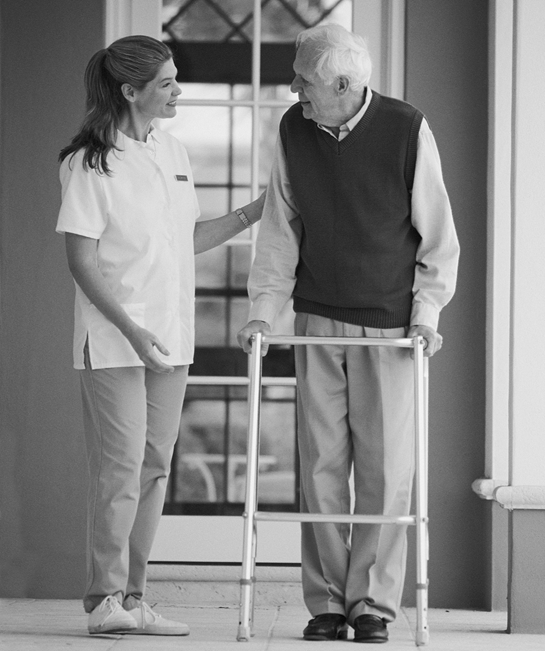
Guide to Choosing a Nursing Home or Other Long Term Services & Supports
People go to nursing homes for different reasons, including if they’re sick, hurt, had surgery and need to get better, or have chronic care needs or disabilities that require on going nursing care. “Your Guide to Choosing a Nursing Home or Other Long-Term Services & Supports” can help you make informed decisions about nursing home care, whether you’re planning ahead or need to make an unexpected decision.
What’s nursing home care?
Some nursing home care is custodial care, like help with bathing or dressing. Other nursing home care includes skilled care (like changing sterile bandages).
What’s long-term care?
Long-term care includes medical and non-medical care provided to people who are unable to perform basic activities of daily living, like dressing or bathing. Long-term supports and services can be provided at home, or in the community, assisted living, or nursing homes.
Before you choose a nursing home, check to see if there are other options available, or if they might help after a nursing home stay. You may have other long-term care options, like community services, home care, or assisted living, depending on your needs and resources. For more information on your long-term care options, visit here.
If you have Medicare
Medicare Part A (Hospital Insurance) may cover:
- Care in a certified skilled nursing facility (SNF) if it’s medically necessary for you to have skilled care.
- Short-term nursing stays following hospitalization.
- Limited home- and-community-based long term care.
Part A doesn’t cover:
- Custodial care if that’s the only care you need.
- Long term care or stays in a nursing home.
If you have Medicaid
Medicaid may cover long-term nursing home stays, and home- and community-based services. Home- and community-based services provide opportunities for people with Medicaid to get services in their own homes or community based. These programs serve a variety of groups, including people with mental illnesses, intellectual or developmental disabilities, and/or physical disabilities.

